Navigating the process of obtaining a conventional loan as a self-employed borrower can be a bit more intricate compared to those who receive a steady paycheck from an employer. However, with careful planning and preparation, self-employed individuals can successfully secure a conventional loan to finance their home purchase or refinance their existing mortgage.
Financial Documentation: One of the primary challenges for self-employed borrowers is providing accurate and thorough financial documentation. Lenders typically require at least two years of tax returns, including all schedules and attachments. This is used to calculate your average income and assess your ability to repay the loan. To ensure a smooth process, it is crucial to keep your financial records well-organized and up-to-date.
Stable Income: Lenders want to ensure that you have a stable and consistent income to cover your mortgage payments. Self-employed individuals often experience fluctuations in income, which can raise concerns for lenders. To address this, be prepared to provide additional documentation that shows your business’s stability and a predictable stream of income go to site. Providing profit and loss statements, bank statements, and business contracts can help validate your income stability.
Creditworthiness: Your credit score plays a vital role in loan approval and interest rate determination. As a self-employed borrower, it is essential to maintain a strong credit score. Pay your bills on time, manage your debts responsibly, and regularly review your credit report for any inaccuracies that need correction.
Debt-to-Income Ratio DTI: Lenders assess your debt-to-income ratio to ensure you can manage your mortgage payments along with your existing debts. This includes credit card payments, student loans, and other liabilities. Keep your DTI as low as possible by paying down debts before applying for a loan.

Larger Down Payment: While conventional loans typically require a down payment of around 3% to 20%, self-employed borrowers might benefit from putting down a larger down payment. A larger down payment can improve your loan-to-value ratio and demonstrate your commitment to the investment, potentially mitigating concerns about fluctuating income.
Hire a Qualified Accountant: Enlist the help of a certified accountant or tax professional to prepare your financial statements. Lenders often scrutinize self-employed borrowers’ income documentation, and having professionally prepared financial records can add credibility to your application.
Seasoning Period:
If you have recently become self-employed, be aware some lenders may require a seasoning period. This means you might need to show a consistent track record of self-employment income for a specific duration before becoming eligible for a conventional loan.
Pre-Approval: Prior to house hunting; seek pre-approval for a conventional loan. This will give you a clear understanding of your budget and strengthen your negotiating position with sellers.
Explain Income Fluctuations: Prepare a detailed letter of explanation addressing any significant fluctuations in your income. This can help lenders understand your business cycles and any exceptional circumstances that affected your earnings.
Shop Around: Not all lenders have the same criteria for self-employed borrowers. Shopping around and comparing offers from different lenders can help you find a loan program that aligns with your financial situation and needs.
Navigating the process of obtaining a conventional loan as a self-employed borrower might require more effort, but it is entirely achievable with careful planning and preparation. By showcasing your financial stability, providing comprehensive documentation, and addressing any potential concerns upfront, you can increase your chances of securing a conventional loan for your homeownership or refinancing goals.
